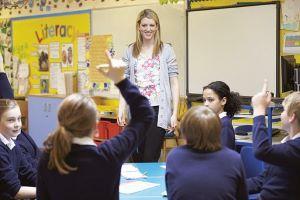Gypsy, Roma & Traveller (GRT) Education
It is important to recognise the GRT community in Hillingdon is made up of: English Gypsy/ Romany, Irish Travellers, Showman/fairground families, Roma
In legal terms, Romany Gypsies, Roma, and Irish Travellers are recognised as distinct ethnic minority groups in the UK, and are protected under the Equality Act 2010. These groups are also recognised as having a shared history, culture, and language stretching back centuries.
There are historically areas in Hillingdon which have always had higher no's of GRT families, these stretch from Harefield in the North of the borough to West Drayton in the South where the local authority caravan site, Colne Park, is situated. The families in Hillingdon live in a mix of local authority housing, home owned housing and private owned family yards/ sites. Many still live traditionally in caravans and mobile homes/ chalets and travel during the summer or visit Gypsy fairs like Appleby or Stow. Living a more settled lifestyle or in a house does not mean dilution or loss of ethnic status or identity, culture and traditions are still very important to GRT families in Hillingdon.
We have developed a set of support documents below that can be used by all schools and other services to address GRT achievement and transition issues. They provide a range of practical strategies to consider typical barriers to learning that may affect GRT children. There is also a selection of good practice examples of schools and a self-evaluation audit to support you in your work.
A School Self-Evaluation Audit Tool: This will help you get an honest baseline for where you are as a school, help identify areas to work on and show the impact of any additional work that you do with GRT children and families. This is for your records only. If you would like to share with the LA that's fine, but there is no obligation to.
GRT self evaluation tool (Word doc, 38 KB)
GRT Strategies Toolkit, What Works Document, Good Practice Schools: A collection of proven, practical strategies used by schools and services across the UK to support the inclusion, transition and achievement of GRT children in education.
GRT strategies toolkit (Word doc, 106 KB)
Good practice GRT schools (PDF, 364 KB)
TM Barriers in Education: This easy to read document highlights the issues facing GRT pupils in education in their own words. We recommend you have a read as is the golden thread that connects our support documents.
TTM Barriers in education_web (PDF, 2 MB)
TTM Good Practice Guide (PDF, 1 MB)
Attendance Support: There have recently been some changes to DfE policy which have impacted on Gypsy, Roma and Traveller families nationally. The Working together to improve school attendance statutory guidance and the changes to coding requirements came into force from 19 August 2024, and has particular relevance to the T Code - Parent travelling for occupational purposes. This is the code which can be entered in the register to record absence for GRT families. This code still applies to GRT families if they live in a house.
Clarification on changes to the T code as issued by Friends Families and Travellers org (PDF, 81 KB)
Resources to Support Schools:
Traveller Times - https://www.travellerstimes.org.uk/ is the only national magazine for the GRT community and subscription is completely free. It is also a website and national media platform providing news, information and features promoting a greater awareness and understanding of GRT culture and life whilst challenging negative mainstream media representation.
The Traveller Movement - https://travellermovement.org.uk/ is a national charity which supports the community, challenging discrimination via education, training and advocacy .They run specific projects for young people and children and actively promote Traveller History Month every year. They also hold a yearly conference. Any professionals working with GRT families can attend. They have recently launched a brand new education website, https://education.travellermovement.org.uk/which provides both information and support for pupils, parents and organisations on how to ensure any educational challenges are overcome and how best to support effective learning for children from GRT communities.
This includes-
- Continued collaboration with the Department for Education and relevant government ministers on central school exclusions policies and how best to tackle the high levels of exclusions within GRT communities. Issuing a special report which examines a successful pilot scheme run in Derby city to reduce fixed-term and permanent exclusions. This report will provide a detailed guide on how to replicate the pilot scheme, with recommendations for both the Department for Education and local authorities.
- Issuing detailed reports on core areas of educational challenges for GRT children, such as: Special educational needs and disabilities for GRT children within education; Elective home education for children outside of formal education; and, GRT experiences in early years and primary education
- Launching a specific project to tackle anti-GRT bullying. This project will support education for educational organisations, as well as offering a media focused campaign, with the launch of an interactive service for families to get accessible advice on bullying.
Their Education Advice and Advocacy Support Unit (EAASU) provides support, guidance and training for schools and education-linked organisations who wish to increase their engagement with GRT communities. You can contact the education team on education@travellermovement.org.uk or, ring 0794 953 3342 if you require support.
Friends , Families and Travellers - https://www.gypsy-traveller.org/ work to end racism and discrimination against Gypsy, Roma and Traveller people and to protect the right to pursue a nomadic way of life. They support individuals and families with the issues that matter most to them, at the same time as working to transform systems and institutions to address the root causes of inequalities which impact on the GRT community. They also run a touring theatre group which visits schools, Crystal's Vardo is a theatre production which uses dance, drama, humour and music to share the rich culture and diverse histories of Gypsy, Roma and Traveller communities. They also deliver bespoke training to schools and public service providers, this can help promote a better understanding of the diversity within Gypsy, Roma and Traveller communities as well as cultures, traditions and histories; Give a better understanding of the barriers which Gypsy, Roma, Traveller and nomadic people face when accessing public services across health, accommodation, justice and education as well as an improved knowledge on how to support people through these barriers; and enable schools and organisations to be better equipped with information to provide more inclusive services to Gypsy, Roma, Traveller and nomadic people.
The GTRSB Schools Pledge - https://www.bucks.ac.uk/gtrsb-schools-pledge. The Gypsy, Traveller, Roma, Showman and Boaters pledge Is an educational initiative to help Improve access, retention, and outcomes in education for Gypsies, Travellers, Roma, Showmen and Boaters. Membership requires your school to commit to working towards creating the most appropriate and welcoming environment and conditions in which GTRSB pupils can stay resilient and thrive academically and personally. The school will also clearly identify and publicise the support for GTRSB pupils already in place which engage the key areas of the Pledge:
- data monitoring of GTRSB pupils and staff numbers
- building a supportive and welcoming culture for GTRSB pupils
- outreach & engagement to local GTRSB communities and
- inclusion, celebration, and commemoration of GTRSB cultures and communities.
- To facilitate this, the school will develop processes to identify GTRSB pupils and monitor their progress, as well as supporting the professional and personal development of staff members who self-identify as members of the communities.
- The school will ensure that staff and pupils across departments are aware of the support available to GTRSB pupils in the school.
- The school commits to ensuring that staff development exists raising awareness of the barriers GTRSB pupils face accessing education.
What happens after a school 'takes the pledge'?
Your school will be named on their dedicated website under the list of schools who have signed up to the Pledge. You will also have the opportunity to link up and network to share good practice with other schools. You will be entitled to utilise the GTRSB schools pledge logo in publicity materials e.g. in relation to Widening Participation and Access activities, or to use the logo on your school marketing materials. Members of the GTRSB Pledge for Schools advisory board will also work with partner schools to publicly promote their practice, and celebrate their achievements in helping Gypsy, Roma, Traveller, Showmen and Boater students to improve access, retention, and outcomes in education. The can also support school staff through signposting training, resources, and best practice conferences. To ensure you are getting the appropriate support and advice you will be asked to engage in 'light touch' feedback/monitoring a year after you have 'taken the Pledge' (and annually thereafter). This involves completing a short online survey. There is also the opportunity to access a supportive telephone conversation or email exchange with a member of the Steering Group in relation to any suggestions or challenges you have faced in the preceding year.
The Advisory Council for the Education of Romany and other Travellers - https://acert.org.uk/. ACERT is a national lobbying organisation working on educational issues, membership is primarily made up of teachers and educational practitioners who work with GRT communities. They hold regular networking meetings and also organise an annual conference which provides a platform for community to share first -hand experiences.
Gypsy Roma and Traveller History Month (GRTHM)
Gypsy Roma and Traveller History Month (GRTHM) is in June each year. It was established in Britain in 2008 as a way of raising awareness of these communities and their contributions to society, and to offset negative stereotyping and prejudices. The aims of GRTHM are to:
- Promote knowledge of Gypsy, Roma and Traveller History, Culture and Heritage
- Disseminate information on positive Gypsy, Roma and Traveller contributions to British Society
- Heighten the confidence and awareness of Gypsy, Roma and Traveller people to their cultural heritage
- Celebrate Gypsy, Roma and Traveller culture and heritage
In Hillingdon we have previously held an annual competition to promote and celebrate GRTHM and invited our schools and families to an awards ceremony at the Civic Centre. Many of our schools have participated and helped us to celebrate.
GRT Books and resources list (PDF, 75 KB)
Local and national contacts and support for GRT families (PDF, 103 KB)
Please email education@hillingdon.gov.uk if you need further support from the LA





